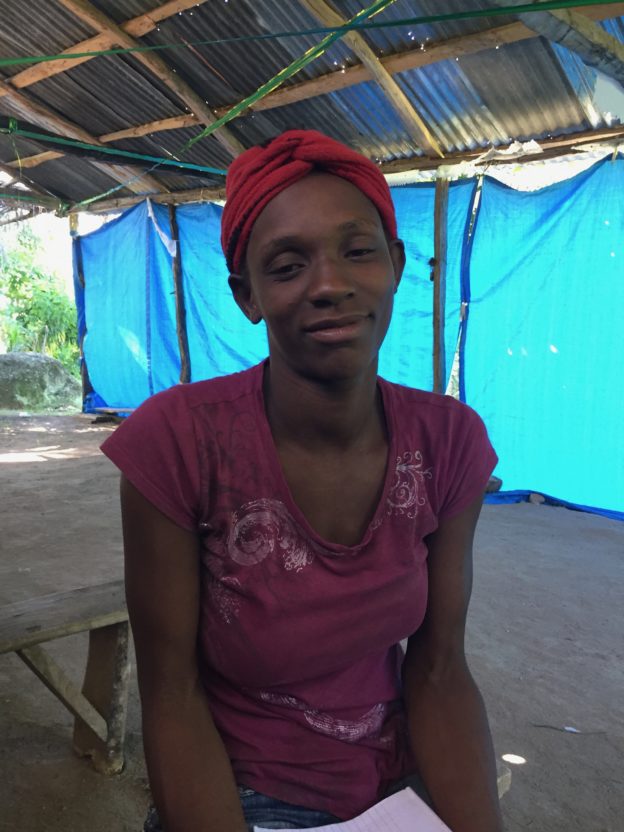Yolène is starting to worry about graduation, although it is still about four months away. At the last three-day training workshop, which she attended with the other CLM members of her cohort, CLM field staff discussed the results of the twelve-month evaluation for each of the women. That evaluation is done with the same survey we use to evaluate them for graduation. And the team also held their first detailed discussion of evaluation criteria.
She knows she has to complete her home repair to graduate, and she’s not concerned about that. Her new house is finished except for its windows, and she already has the wood that she’ll need for that job. She still needs to pay for the wood, though. She bought it on credit. But she should be able to find the money she needs.
She’s more concerned about the value of her assets. Our criterion for asset value is designed to show whether a member has been able to increase what we have given her through her own efforts. Yolène has focused almost entirely on livestock, and her animals haven’t yet increased as much as she would have liked. So, she’s afraid that it won’t be enough.
She certainly hasn’t had much luck. Each of her two goats had two kids, but none of the four survived, so she still has only two goats. They are pregnant again, and they’ve grown significantly since she first received them, but they haven’t gained enough value to make a big difference in her total. Her pig had five piglets, but only two survived.
But although the piglets are still small, they are starting to grow, and the sow is pregnant again. With a couple of months ahead of her during which they should continue to gain value, and her continued savings through her Village Savings and Loan Association, Yolène should have enough to graduate, but she doesn’t have much confidence about it. And graduation is very much on her mind.
She has an objective for her livestock, one that many CLM members share. She’d like to buy a cow. Ownership of a cow confers status on a Haitian in the countryside, status that is importance both psychologically and practically. The poorest families can’t afford such a large or such a long-term investment. They have to focus their meager resources on immediate needs. Owning a cow puts someone in a different category in their own and their neighbors’ eyes. A cow could take a couple of years to provide a significant return, but owning one also puts you on an unwritten list in your community. If someone in the neighborhood has a piece of land they want to sell, they’ll consider you as a possible buyer. And for people like Yolène and her husband, who have been forced to work as sharecroppers and day laborers all their adult lives because they’ve never had their own land to farm, taking a step towards buying farmland is a top priority.
She has been talking about her plan with her case manager, Martinière, and has discovered that they don’t agree about the next step to take. Martinière, she says, doesn’t really believe in her sow. The two small piglets that survive are too little production. He’s advised her to fatten and sell the sow and then focus her attention on raising one or both of the piglets, which are also females.
But for Yolène, the fact that the sow had a litter already makes it a proven thing, even if its production thus far has been meager. She wants to hold on to the sow and sell the piglets instead. Since she won’t sell either until December, she has some time to talk further with Martinière and to make her decision. What is encouraging is that she is clearly listening closely to his advice while also confident in her sense that the decision is hers.
While we were chatting, Yolène was hard at work. She had just finished talking with Martinière, and he had given her homework. He had written her name in block letters across the top of a page in a student’s notebook, and she was copying it, letter-by-letter. She says that learning to write her name is important. And she explained: “When I went to get an ID card, they asked me to sign my name, and I couldn’t. I had to make a little cross instead. That really hurt.”
